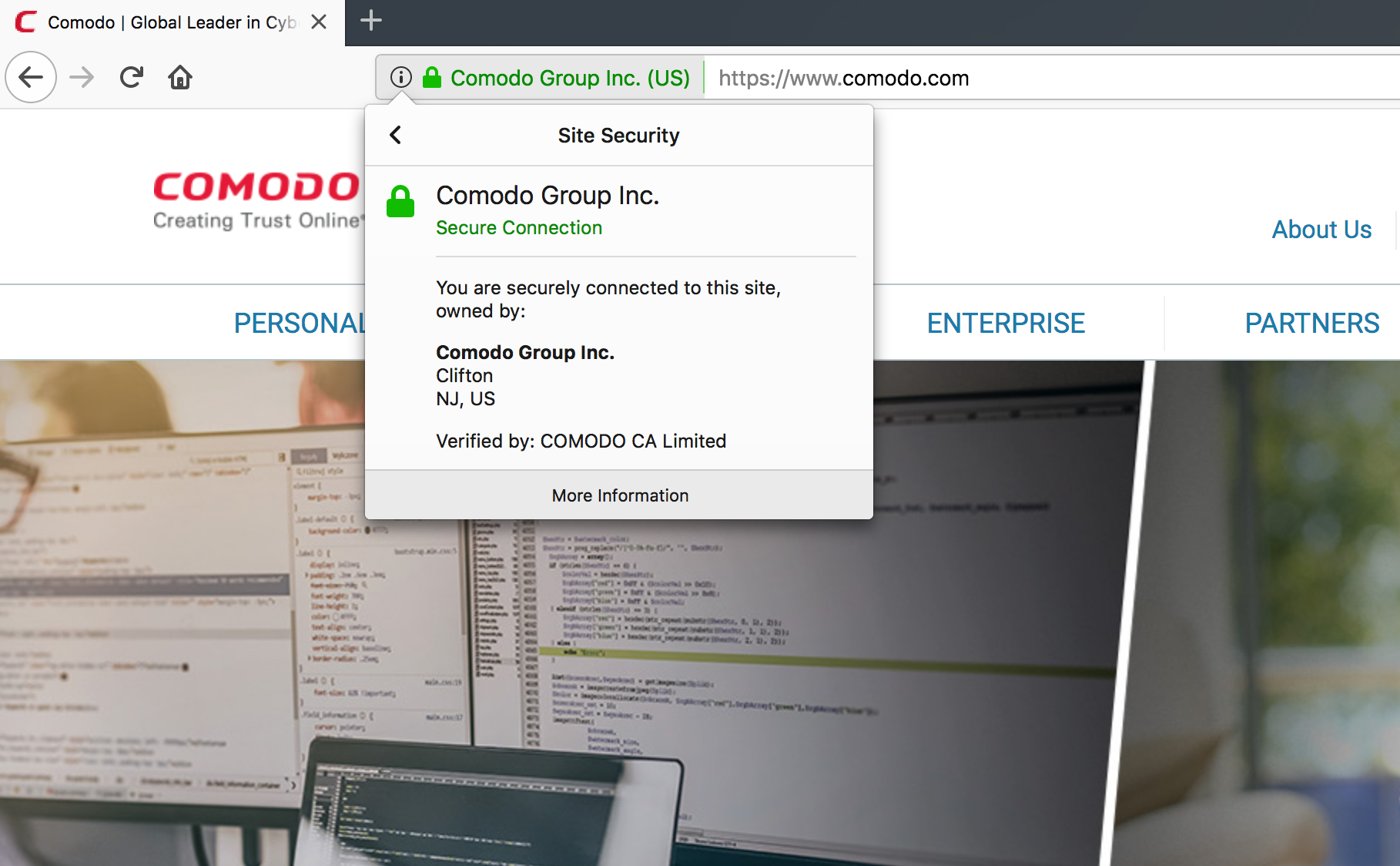An SSL Certificate is a digitally signed certificate that establishes the identity of a website and uses encryption to send data to the website. The certificate is issued by a trusted authority known as a Certificate Authority (CA) and typically contains information like the Owner's name, Name of issuer, the certificate holder's public key and an expiration date.
SSL certificates can be used for a variety of transactions, although their usage has been most prominent in E-commerce. SSL Certificates are generally used when a website wants to accept sensitive information like passwords, credit card details and other sensitive information.
To a consumer, SSL certificates provide an online identification method and assurance that the online transaction he is indulging in, is actually being promoted by a genuine business or institution. The certificate thus establishes a secure path between the merchant and the consumer.
You can view a website's SSL Certificate by clicking on the lock icon in the address bar of a browser.

Types of SSL Certificates
Demo Registrar offers the following types of certificates:
- Comodo SSL
- Positive SSL
- Positive SSL Wildcard
- EV SSL
Comodo SSL and Positive SSL provide security for one Domain Name and is best suited for small websites and blogs.
Positive SSL Wildcard provides security for the primary Domain Name as well as its sub-domains, and is best suited for large e-commerce websites.
EV SSL certificates are extended validation certificates that involves stringent vetting process to validate and verify if the entity which has requested for an SSL Certificate is legitimate. Users can see a green address bar if the website is secured with an authorized EV SSL Certificate.